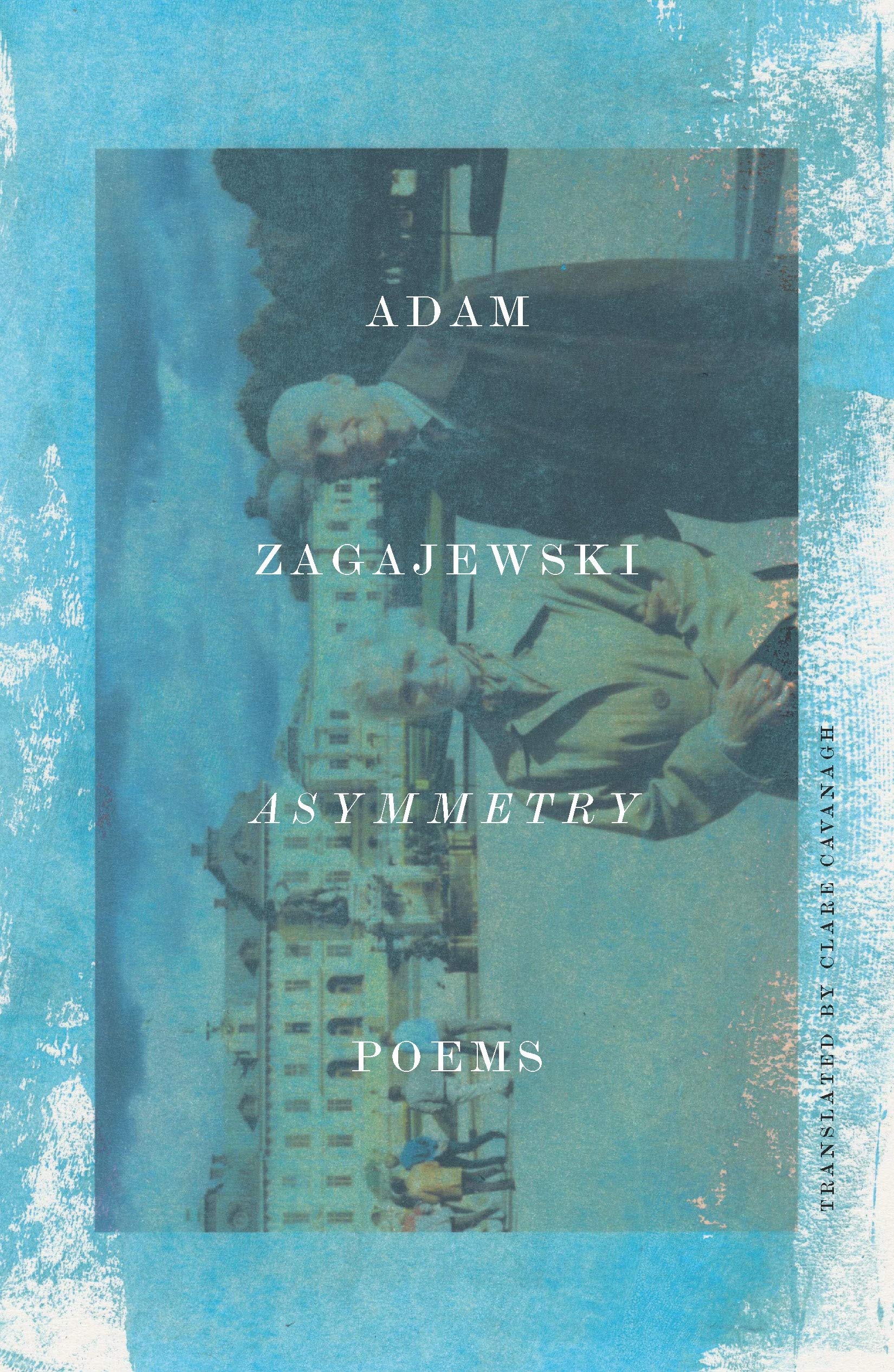
In the 31 Books in 30 Days series leading up to the March 14, 2019 announcement of the 2018 National Book Critics Circle award winners, NBCC board members review the thirty-one finalists. Today, NBCC board member Charles Finch offers an appreciation of poetry finalist Adam Zagajewski’s Asymmetry (Farrar, Straus and Giroux).
Adam Zagajewski had a long line of credit with me before I opened Asymmetry, his 2018 finalist for a National Book Critics Circle prize in poetry; but the book never had call to draw on it.
Zagajewski’s work has always seemed like an ember in a dying fire. He begins – not dissimilarly from Patrick Modiano – in the bewilderment of the wars in Europe, and wherever he is writing from, writes from them, giving last poignant life to historical traumas that are starting to fall out of human memory, to our cost.
The result is that his poems often seems to contain more than their author’s years of grief, displacement, and hope. Take these lines from Life Is Not A Dream:
We tried courage, since there was no exit.
We tried cunning, but it failed.
We tried patience and fell asleep….
We tried time; it was tasteless, like water…
And life went on, inevitable life,
so skeptical, so practiced,
coming back to us so insistently
that one day we felt the taste of ordinary failure,
of common tragedy upon our lips,
which was a kind of triumph
Inevitable life. It has turned Zagajewski 73, and readers make allowances for poets of that age. But Asymmetry wants no clemency of us. It’s not a wispy twilight volume of poems – it’s as tough and alive and vulnerable as Zagajewski’s strongest poetry.
It does contain his usual trademarks, including his memorable lyric gift. It’s October, he writes, via the unsurpassable translator Clare Cavanaugh, and the golden trees obey the wind. It has lines that will make you laugh. (One of my favorite poetic laments: If only we read poetry as carefully as menus in expensive restaurants.) It is obsessed with the subject nearest and most painful to his heart, still a child of Lvov – the grief that time must take everything.
But Asymmetry is also a gamble for the poet. More than any of his other books, it has a subtle internal organization, approaching and retreating, as in a minuet, its subject, which is the death of the poet’s mother. He comes at this impossible subject so slant – the very cover of the American edition is a horizontal picture of the two turned vertical – that it seems somehow to purify or authenticate the depth of his heartbreak, mostly invisible on first reading. He burst through his reticence just once or twice:
Only now, or so I think,
do I approach the proper tone,
only could I talk with my parents,
but I can’t hear their answers.
Every year there’s a murmur that Zagajewski might win the Nobel Prize. Canny bettors will be able to find him at, oh, 33/1 this year, I’d guess, maybe a bit lower.
To become a finalist for the NBCC award in poetry, though, is decidedly the opposite of a lifetime achievement award – this is a board that takes seriously its task of identifying and championing important new work.
It is to Zagajewski’s immense credit that he remains in both conversations. His gift in Asymmetry proves undimmed, and his sense of urgency fresh and heightened. We honor art, he writes, since we’d like to know what our life is. He doesn’t imagine that we will. And yet in his poems, at least, it seems vital that we try.
Review in World Literature Today
“Nowhere,” in Lit Hub

